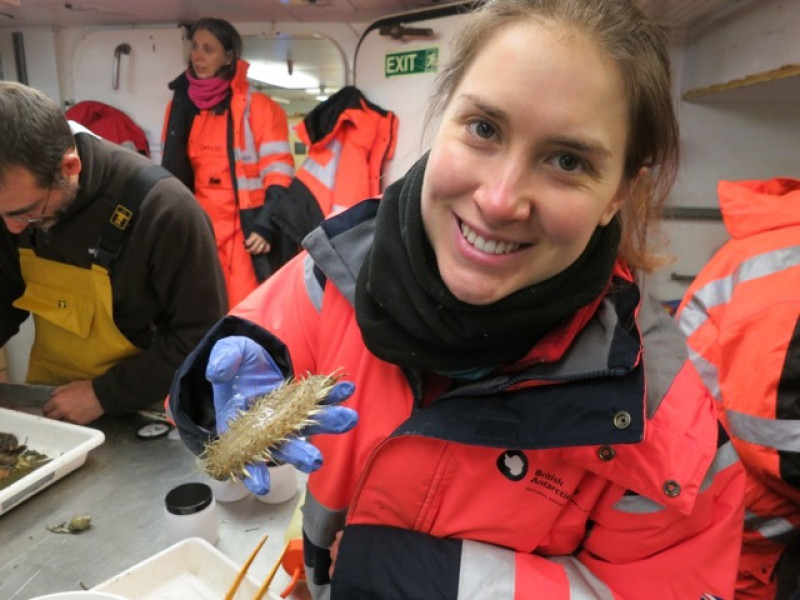Homeward Bound Women in Science Leadership Programme: Antarctica
Madeleine Brasier
University of Liverpool

In 2017 I was awarded a place on the Homeward Bound Women in Science Leadership Programme (as my post in the Challenger Society's Captain's Blog). The training takes place over a 12-month period and covers science communication, leadership, personal strategy and visibility, culminating in a three-week expedition to Antarctica. A total of 78 women from 14 different counties and different STEM fields took part in the expedition which visited Antarctica in February-March 2018.
To fund the expedition each participant must raise c. $20,000. After being a member of the CSMS for several years and participating in a range of outreach events as well as being on the local organising committee for the Liverpool Challenger Meeting in 2016, I was delighted to be awarded a CSMS travel grant to help fund my expedition.
The training coincided with the final year of my PhD. The visibility training and funding requirements helped me share my science with wider audiences. Over the last year I have given public science talks, visited ~20 UK schools, done radio interviews and several newspaper and magazine articles. These opportunities have been of benefit to my personal development and have increased the visibility of UK marine science.
During the expedition I could network with the other Homeward Bound participants, gaining contacts around the globe and insight into different scientific disciplines including conservation, policy, education and sustainable technologies. This was an amazing experience and opportunity. Science working groups within the 2018 cohort are now planning initiatives to help improve the gender gap in science, reduce our impact on the planet and raise awareness of climate change.
Antarctica was chosen as the backdrop of Homeward Bound because of its isolation and vulnerability. Training in this environment, where our impact of climate change is so visible, underlines the growing need for international collaboration. During the expedition we visited 4 different research bases; Carlini (Argentina), Great Wall (China), Palmer (USA) and Rothera (UK) as well as sites of historical importance: - Port Lockroy and Base Y (British) and other locations of biological interest.
As I advance into the postdoctoral world I feel the skills, connections and experiences gained from Homeward Bound will help my confidence and professional abilities to move into new roles and positions. The programme will continue for a further 8 years with a new cohort each year. I am happy to talk to any CSMS members who are considering apply and hope that the CSMS are able to support future participants.
Latest News
Royal Society Publishing Photography Competition 2025
Please see a message from the Royal Society below:
We are delighted to announce that the 2025 Competition is now open for entries until 15 August for a chance to win £1000! The competition celebrates the power of photography in conveying the wonder of science happening all around us and photographs can be submitted in the categories of: Astronomy, Behaviour, Earth Science and Climatology, Ecology and Environmental Science, and Microimaging.
The competition is free to enter and open to anyone studying or working in science at graduate level or above. Category winners will receive a one-year membership to the Royal Photographic Society and the overall winner will receive a grand prize of £1,000. Find out more: https://bit.ly/RSPphotocomp
October 2025 MEDIN Workshop: Marine Data Management, Governance and the MEDIN toolset
The Marine Environmental Data and Information Network (MEDIN) are pleased to announce that registration is now open for the next occurrence of our popular free online training workshop: ‘Marine Data Management, Governance and the MEDIN toolset’ on the 13th – 17th October 2025 on OceanTeacher Global Academy.
Marine Data Management, Governance and the MEDIN toolset
The Marine Environmental Data and Information Network (MEDIN) and OceanWise are delighted to invite you to attend our popular free online training workshop: ‘Marine Data Management, Governance and the MEDIN toolset’ on the 19th – 23rd of May 2025.
